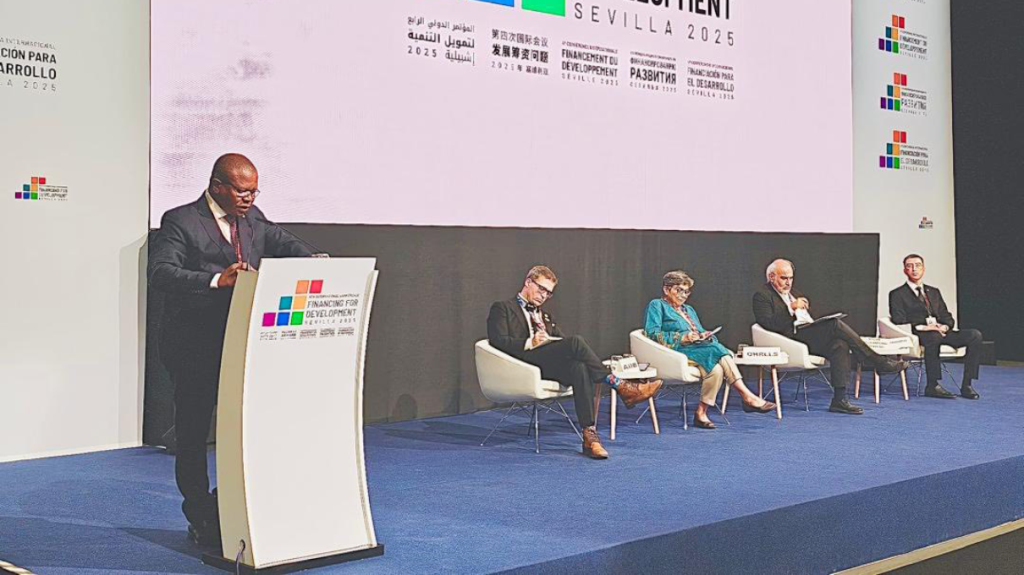
By Nontokozo Gwebu
The Minister of Commerce, Industry, and Trade, Manqoba Khumalo, has called for urgent financial reforms to support landlocked developing countries (LLDCs).
Speaking at the Fourth International Conference on Financing for Development held in Seville, Spain, the Minister urged global institutions to provide fairer access to capital and climate finance, and to invest in the economic potential of LLDCs through partnerships, mining, and digital infrastructure.
More broadly, Khumalo called on global financial institutions to rethink how LLDCs are financed. He proposed tools like blended finance, climate-focused investments, and affordable capital to enable LLDCs to participate meaningfully in global trade.
“We are not looking for charity, but we want to meaningfully participate in the global arena,” he said.
According to Minister Manqoba Khumalo, Foreign direct investment (FDI) into landlocked developing countries (LLDCs) stood at E462.5 billion in 2023 (US$25 billion), a sharp decline from E666 billion in 2011.
He further noted that Official Development Assistance (ODA) dropped from E704.85 billion (US$32 billion) in 2020 to E595 billion (US$32 billion) in 2023, with projections of further declines by 2025. Despite accounting for 7% of the global population, LLDCs contribute only 1.2% to global merchandise trade.
Khumalo emphasized that trade and transport costs remain 74% higher than in coastal countries, while nearly one-third of LLDCs face a high risk of debt distress, which is further worsened by global crises.
For Eswatini, the solution lies in transforming challenges into opportunities. The country is accelerating the development of its mining sector, targeting resources like coal, gold, and quarry stone. The goal is not only extraction, but also building local processing capacity to grow exports and contribute significantly to GDP.
Khumalo also highlighted Eswatini’s progress with public-private partnerships (PPPs) in renewable energy, and the country’s plan to replicate this success in the mining and digital sectors. “We want partnerships that deliver shared value and long-term impact,” he said.
Digital equity is also central to Eswatini’s growth strategy. With only 30% of the population having reliable internet access, the country is investing in broadband expansion and youth-focused digital skills training to drive entrepreneurship and innovation.
